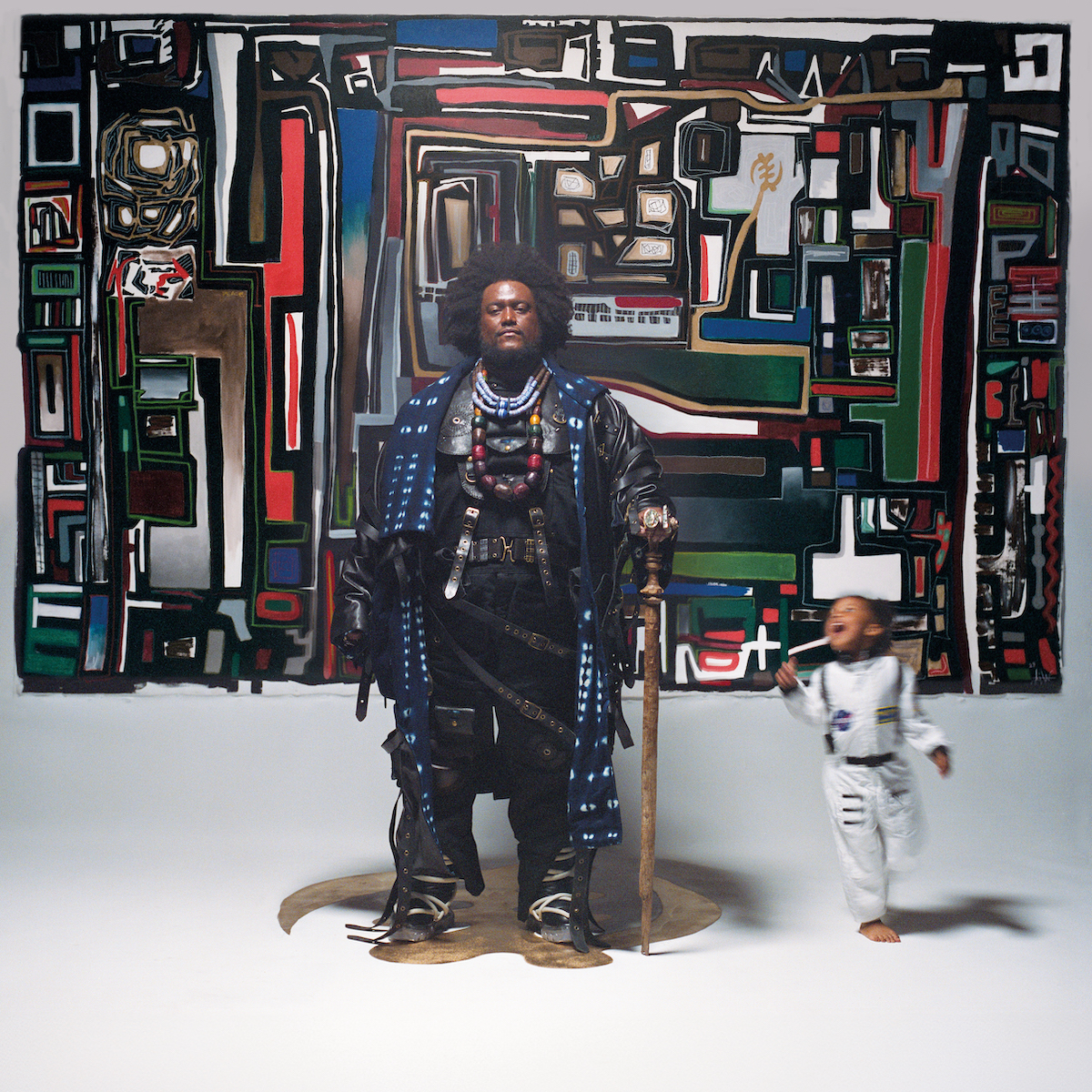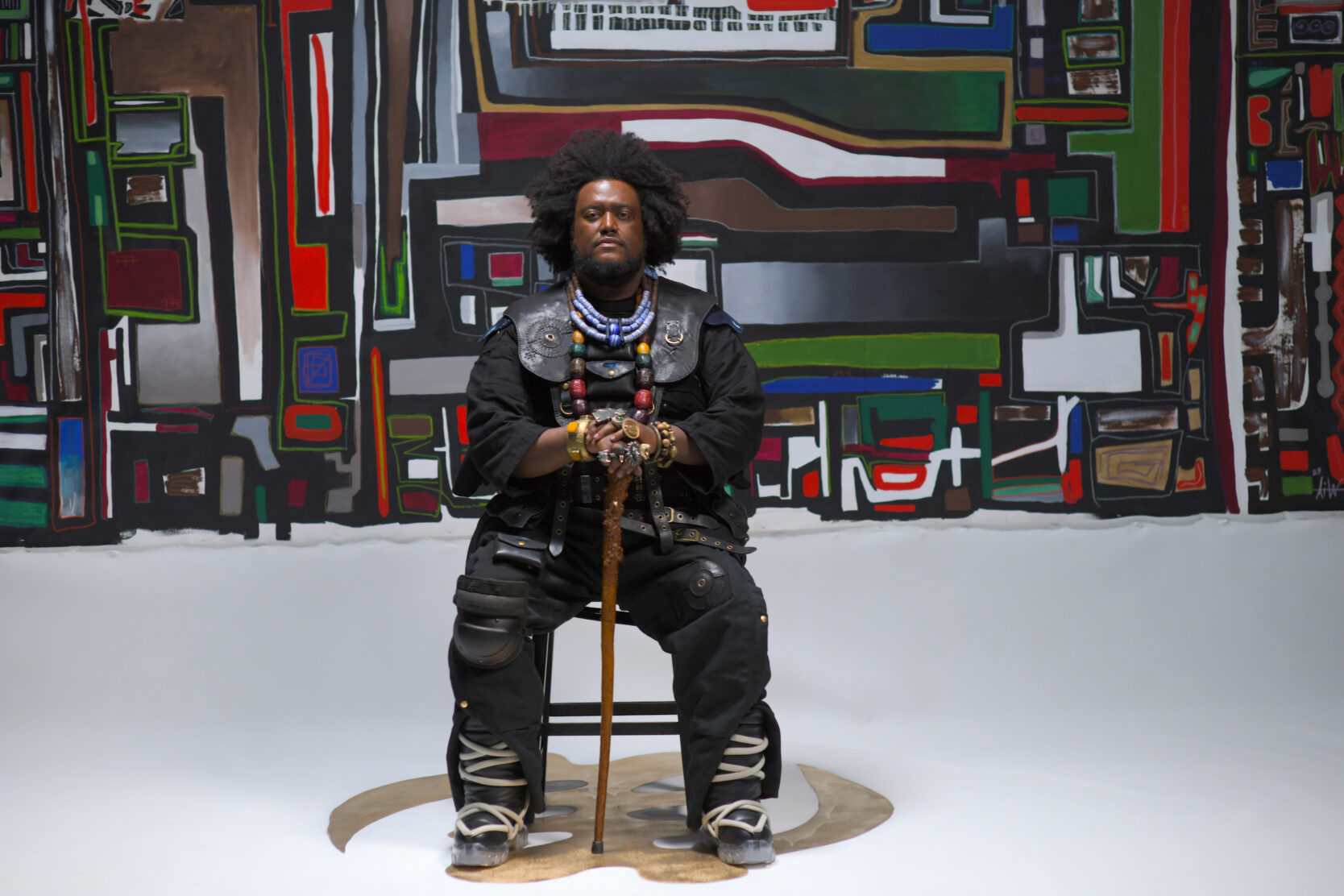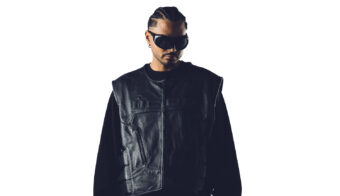Kamasi Washington – Fearless Movement
Young
You can argue about the various ways Kamasi Washington has impacted jazz culture, but one thing is undeniable: Compared to the prolificacy that has defined most important jazz musicians’ discographies, his pace and scale are positively Kubrick-ian.
Running almost 90 minutes, Washington’s Fearless Movement is only his third proper full-length since 2015, when he dropped a three-hour jazz-orchestral marathon pointedly titled The Epic. It made the gracefully charismatic saxophonist a certified crossover phenomenon, the sort who personifies a zeitgeist. In his case, that meant an intergenerational embrace of Great Black Music as an atmosphere where the church, Blue Note, Impulse!, Fela, Sun Ra, Strata-East, all manner of R&B, and conscious rap coalesce. Washington has kept his surname, but he hasn’t needed it for years now.
Between the main events, he released other outstanding music. His EP Harmony of Difference argued that relative brevity suits him too, and its final movement, “Truth,” ranked among the most stirring offerings of the 2017 Whitney Biennial. As part of the beat-savvy supergroup Dinner Party, he proved he’s not all ambition; he can be a good hang as well, able to embellish a jam as effectively as he leads an army. But Fearless Movement arrives as a major statement, with levels of media anticipation befitting a pop or hip-hop release. So what of it?

Also Read
The Exquisite Agony of Myriam Gendron
In short, it’s another excellent Kamasi Washington record, one sure to sate fans of his well-honed 21st-century spiritual jazz—captivating, no doubt, but also so codified by now that it can border on a rote set of strategies. It’s a sonically outsize record—you’ll want over-ear headphones to parse the layers of production, electronics and percussion—though by the wall-of-sound standards Washington established in the past, it comes off as practical, even modest. He exercises taste and control in terms of personnel—faithful to the L.A. clique he ascended with, writing collaboratively, deploying special guests with meaning rather than to namecheck.
There’s magic here, and hip-hop fun that feels new. In a programmatically brilliant one-two punch, the avant-ambient vibes of “The Visionary,” with Terrace Martin on alto sax, fall into the A-plus lowrider fare of “Get Lit,” boasting pitch-perfect features by George Clinton and D Smoke. André 3000’s flutes dart and flit under the radar on “Dream State,” an album highlight that moves from smartly produced spaciness to low-flame funk. (Dré’s hazy contributions fit the bill, though it’s hard not to imagine what might have transpired had he brought his primary instrument.)
In reflection, other moments crop up in your memory: “Asha the First,” a co-write by Washington’s toddler daughter, with its blaxploitation-martial-arts theme, Thundercat showcase, and the jabbing bars of MCs Taj and Ras Austin; the postmodern Quiet Storm of Zapp’s “Computer Love” and trombonist Ryan Porter’s “Together,” the latter of which fits Kamasi’s Grover Washington tendencies like a glove; a risky but successful dance-floor arrangement of Piazzolla’s “Prologue.”
But as with nearly everything Washington has done, Fearless Movement mostly hits like an aura. It’s a runaway locomotive of sparring drum kits, collective improvisation, Patrice Quinn’s Afrofuturist vocals, and Washington’s own extended solos. As a player, he still enjoys overwhelming the soundstage and sustaining his intensity until a listener reaches either enlightenment or exhaustion. He matches his Trane- and Pharoah-isms with the tighter, smoother radiance of a technician like Kenny Garrett, and his tonal curiosity for electronics reaps entrancing rewards; in groove, technology and mission alike, he’s a scion of Eddie Harris.
Ultimately, Fearless Movement bolsters Washington’s prowess as a jazz bandleader engaged in cultural and musical curation. Rather than transforming the actual language of composition or harmony or improvisation, he stacks his influences and relationships to form an ensemble sound that is monumental, and thoroughly his own. In or out of jazz, that means so much. – GRADE: A
You can preview Fearless Movement at Bandcamp and elsewhere.





